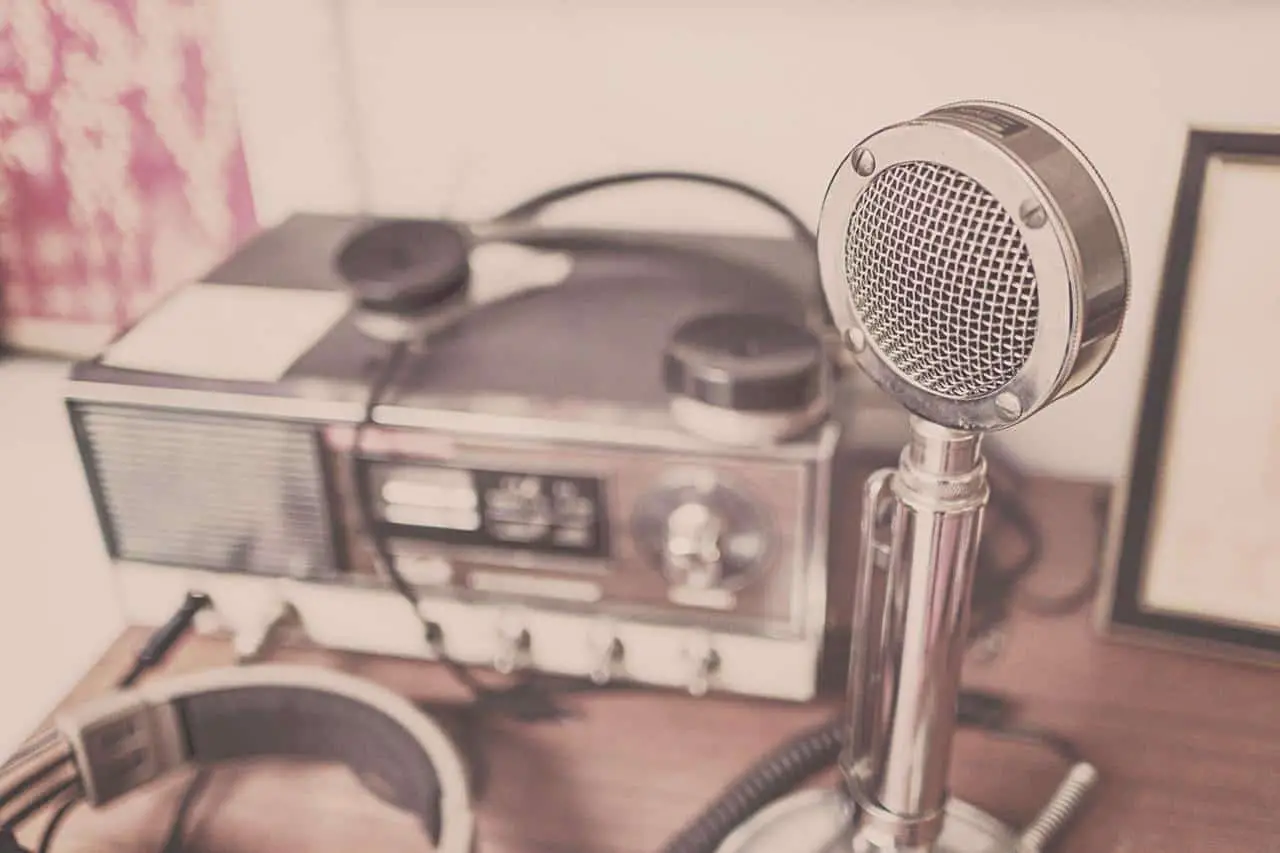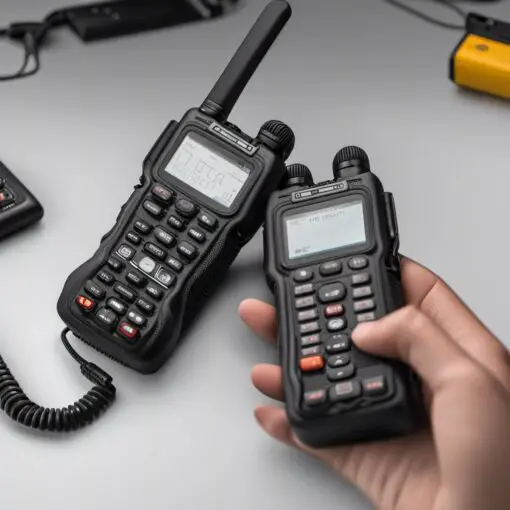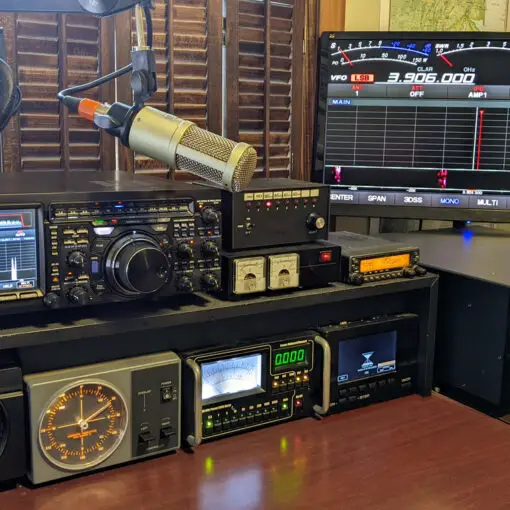Listening to your local radio stations can easily leave you tired. All that the AM stations play is the news and traffic reports, and most of these segments are so depressing that you wouldn’t want to hear any more than you have to. FM stations, on the other hand, play the same five songs every hour, which gets so repetitive. More than anything else, it seems so scripted and unauthentic. Radio DJs are personalities more than they are people. It’s not that you even want to be a part of a conversation, but sometimes you just need to listen to another human being speak. Plus, operating amateur radios is so strictly regulated and complicated that you’d need to go through the whole process of getting a license just to listen in… right?
In actuality, you don’t need a license to listen to hamradio. The only thing that requires a license is broadcasting, so if you’reonly in the business of listening in on someone, a license isn’t necessary. Infact, a radio itself isn’t even necessary.
What’s important to know about listening in on amateur radio broadcasts is knowing exactly what that entails. For one, music isn’t allowed over ham radio. Secondly, think of the kind of people who are going to be talking. The only thing you’ll ever hear over ham radio is, well, other guys on ham radio. The plus side is, people talking over ham radio aren’t doing it for a show or a spectacle. They aren’t manufacturing authenticity to garner views on a video platform or streaming service. It’s just real people out there talking for the sake of talking.
Pros and Cons of Licensing
So you don’t need a license to listen in on ham radio. But is it worth getting licensed anyway? Answers seem to vary, depending on who you ask. There are plenty of hams who feel that needing a license to operate a radio is an infringement of freedom, and some might refuse to outright, despite the possible legal repercussions. But if you’re only planning on using your radio to listen, why bother? Really, that depends on whether you think you’ll be the kind of person who will eventually want to start talking. It’s possible that one day, you may want to respond to the people you’ve been listening to. You may even want to start talking yourself, as a way of catharsis. And sure, you can get a license anytime, it’s not as if all the listening you’d done beforehand was wrong. But in that case, why not just get a license from the beginning? For every one person who tells you not to get a license, there are three more who’ll encourage you to. After all, what happens in the case of an emergency, and you want to start broadcasting for help? Well, in cases like that, rules become a little grey and flexible. If you’re going against a code in order to save lives, it’s going to be pretty difficult for anyone to naysay you. And realistically, emergencies that require ham radio as a last resort aren’t incredibly common. So, in the end, it all comes down to you as a person. But going through the process of getting a license if you know you’re never going to actually transmit on your radio doesn’t really seem worth it.
How to Listen to Ham Radio
The thing about amateur radio is that they don’t operate like the radio stations you might be used to. There aren’t certain stations going on set frequencies for 24 hours. When you turn on, you have to move around a bit to find a clear transmission, and while that in itself isn’t different from other types of radio, you can’t really stay on one station and always come back to the same thing. However, there are manuals and websites listing certain bands, the schedules of some big-time broadcasters, and what kind of content you’ll find on each band, so it isn’t always a total shot in the dark.
Think about Who’s Talking
When you start listening in on amateur radio, there are a number of things you can listen for, but the most common thing you’ll find is other hams talking. And this is generally the thing you have to be prepared for the most, so it’s important to take into account who you’re going to be hearing. The colloquial term for general conversation is ‘chewing the rag.’ As that old-fashioned name implies, a good chunk of ham operators is older. Kids born into the age of information technology might occasionally pick up amateur radio as a hobby, but are much more likely to be attached to their computer or their cell phone than a radio. Most don’t even use the radio for music anymore. So the operators sending out broadcasts are older-skewing. Moreover, amateur radio is something of a boy’s club. That isn’t a bad thing—everything has a demographic. It’s just the same as most of the ASMR community being young, and podcasts being generally dominated by geeky types in their mid-20s. It’s just the way things work out sometimes. So, if guys of the boomer generation chewing the rag sounds are stuff you want to listen to, ham radio’s easy and accessible. Maybe you, an older man yourself, are looking to hear more from people your own demographic. But if that doesn’t sound appealing to you, it’s something you need to be prepared to navigate around.
Think about others who also like to use amateur radio. Yep, doomsday preppers. Are you curious about how some people are building bunkers? Do you want to know how to use a variety of frequencies to keep communication going after civilization collapses? Do you want to hear the ravings of a guy who believes the government is run by shape-shifting lizard aliens? There’s no better place to find exceedingly authentic believers. Maybe you believe it or maybe it’s pure entertainment value for you. Whatever your reasons, amateur radio is where doomsday preppers live.
Of course, there are a ton of other uses for ham radio. Some start up their own talk shows and other hold competitions. Some use communication as a way to get better at broadcasting themselves, sharing the things they’ve learned about ham radio over the years. Learning information about ham radio isn’t fully possible unless you experience it, and even just by listening you can absorb all kinds of information.
Related Questions
Is amateur radio budget-friendly?
As a hobby, ham radio isn’t one of the more expensive ones. Sure, delving deep into it can result in purchasing thousands of dollars’ worth of equipment. But in general, it doesn’t cost a lot. A small, handheld radio can be purchased for around $30 in some places. That’s not too shabby. And it is possible to make money from ham radio, some even counting it as their entire income. As a listener, though, you won’t be making anything. So you’d want to purchase one of the small, inexpensive radios that won’t have a very wide range.
What are the pros of amateur radio as opposed to others?
There are other kinds of radio you can get into, but ham radio holds a special place in being able to reach all sorts of bands. Shortwave, VHF, to microwave, it’s all reachable and it’s all legal. You can connect to AM and FM frequencies. Best of all, ham radio doesn’t have to be limited to a local range. You can listen to other amateur radio operators on the opposite side of the world. When it comes to purchasing your own amateur radio, there are a lot of people who can help you make the right decisions and teach you how to use it. If you do decide to get licensed, you’ll be a pro at using one.
Can I use other devices?
Yes. If you’re certain that all you want is just to listen in, there are ways to access ham radio without using one yourself. All you need as in Internet connection. One way to use it is through the website ‘WebSDR.org.’ There’s a wide array of online links all over the world you can access by clicking. Once on a link, you can move around the band and find what you’re looking for. There are several other similar sites, some worldwide and some only in local areas. What’s great about this is I means you can get the experience of using a ham radio without needing to buy one yourself. It’s often more convenient for younger users, as they’ve already got a phone of a laptop to work from, and everything makes more sense when up on a computer screen. Moving a cursor along is easier for some than turning a knob. If you’re further interested in it, there’s software you can download that simulates ham radio, such as ‘Ham Sphere.’ Listening in on your phone to the radio of the college you’re hoping to get into might also prove interesting and informative.
Can I listen to official broadcasting?
A common and popular use of ham radio is to listen to
official frequencies such as police scanners, the fire department, and air
traffic control. This usage can start as a fun hobby and eventually transform
into an actual learning experience It may even kindle a new passion in the
listener.





